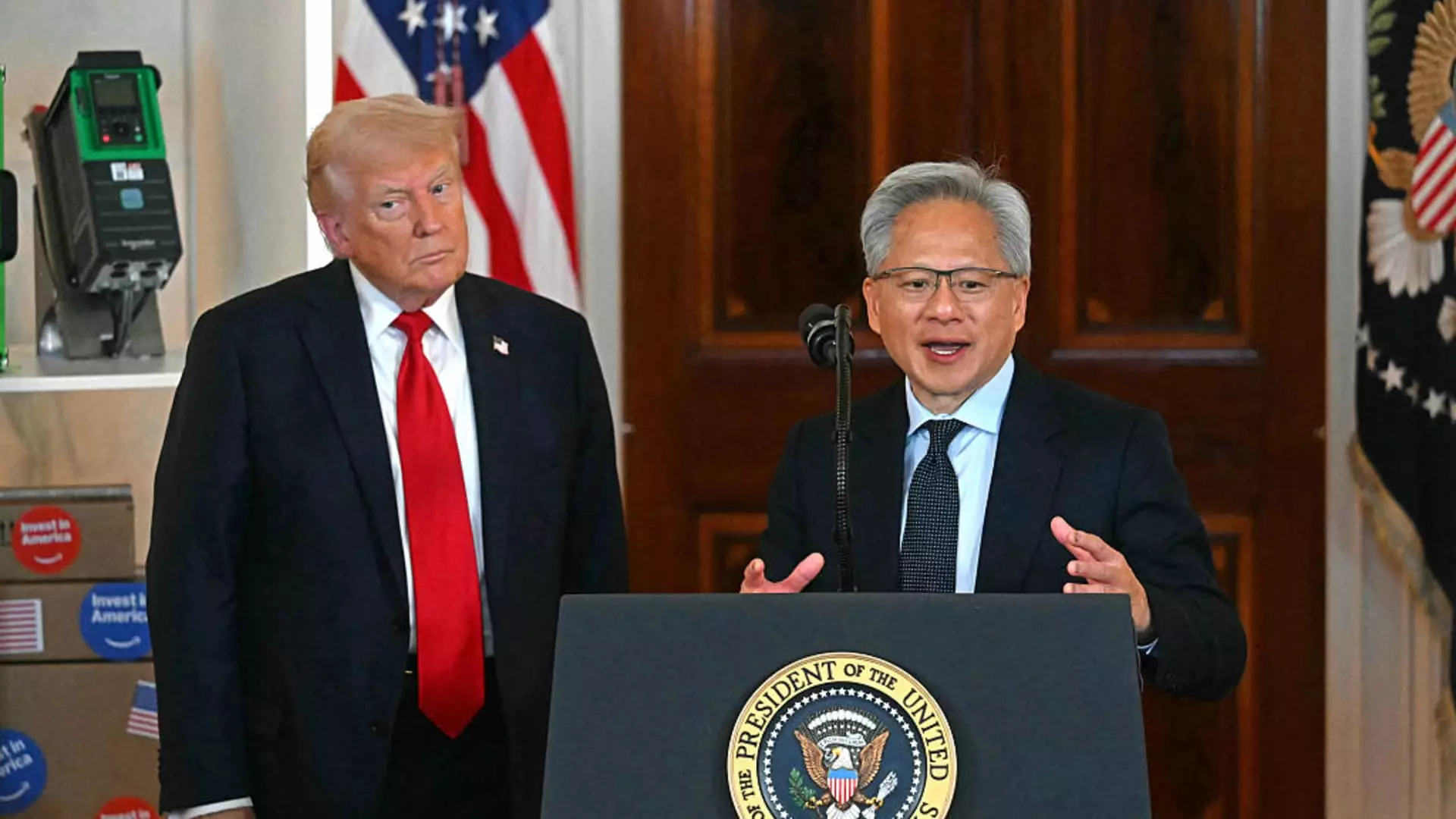In recent political discourse, a troubling narrative has emerged that champions economic flexibility at the cost of our national security. The decision by President Trump to allow semiconductor giants Nvidia and AMD to sell advanced AI chips to China, in exchange for a cut of revenue, exemplifies this misguided prioritization. While some might portray this move as a pragmatic approach to economic growth, deeper analysis reveals a perilous neglect of the strategic importance of technological supremacy. The premise that financial incentives should override careful national security considerations is fundamentally flawed, risking irreversible damage to the foundations that distinguish the United States as a technological leader.
This policy approach hinges on the assumption that revenue sharing with China will foster economic growth and innovation. However, it disregards the dangers posed by facilitating advanced AI technology transfer to a major geopolitical competitor. The chips in question—Nvidia’s H20 and AMD’s MI308—are not mere commercial products; they are the backbone of AI systems that can be weaponized, integrated into military platforms, or used for surveillance. The idea that these chips are benign simply ignores the broader strategic implications, reducing complex security issues to transactional exchanges that are shortsighted and dangerously naive.
Neglecting the Real Cost of Technological Erosion
By allowing Chinese access to cutting-edge AI hardware, the United States risks depleting its technological edge—a decline that could have devastating long-term consequences. Historically, America’s dominance in semiconductor innovation has been a critical pillar of national security and economic power. This dominance has not been accidental; it is the product of deliberate policies that prioritized innovation, investment, and strict export controls. Diluting this advantage for immediate financial benefit is a sellout to short-term profits that endangers the very fabric of American technological leadership.
Moreover, the senators’ warnings about military applications are well-founded. AI integration into military systems is a frontier where American preeminence has provided vital strategic advantages. Sharing these chips with China without robust safeguards could inadvertently bolster its military modernization efforts—an outcome that contradicts the expressed intentions of protecting national security. Nvidia’s protest, claiming that their chips do not enhance military capabilities, misses the larger picture: technology is often dual-use, and the line between civilian innovation and military utility is increasingly blurred. Technology transfer with inadequate oversight thus becomes a gamble with national safety.
The Illusion of Economic Cooperation and the Reality of Strategic Retreat
Proponents argue that such arrangements promote global economic integration and innovation. They suggest that open markets and cooperative technology exchange benefit all parties, including the U.S. by fostering a vibrant innovation ecosystem. Yet, this perspective significantly underestimates the strategic costs linked to allowing adversaries into the inner sanctum of American technological leadership. It presumes that China will respect boundaries and not leverage U.S. chips for military or surveillance purposes, which is an optimistic—if not naive—view.
What truly emerges from these policies is a pattern of strategic retreat masked as economic pragmatism. The U.S. appears willing to sacrifice its competitive edges to appease short-term geopolitical considerations, like revenue sharing and appeasing economic interests of corporations and politicians. Policymakers must recognize that economic strength cannot be divorced from security; one feeds the other. When technological innovation is compromised, the nation’s overall standing diminishes, and with it, the capacity to defend its interests globally.
Reckless Decisions or Misguided Strategy?
The ongoing debate underscores a fundamental flaw in the current governance of technological sovereignty. Weakening export controls and offering revenue-based concessions reveal a troubling underestimation of the risks involved. The silence from White House officials and AMD about future impacts underscores a lack of transparency and preparedness in managing these delicate strategic issues. While some corporate interests may gain short-term profit, the nation as a whole bears the cost—an erosion of innovation, increased dependency on foreign technology, and diminishing leverage on the world stage.
The move towards appeasement, cloaked under the guise of economic pragmatism, reveals a troubling tendency in centrist liberal policy—prioritizing immediate economic gains at the expense of robust security strategies. It indicates a critical need for reevaluation: Are we truly safeguarding our technological future, or are we unwittingly paving the way for a future where China surpasses us? The answers lie in whether our policymakers recognize that vital national interests cannot be compromised for superficial gains, and whether they are willing to take firm stances that protect our long-term strategic integrity.


Leave a Reply